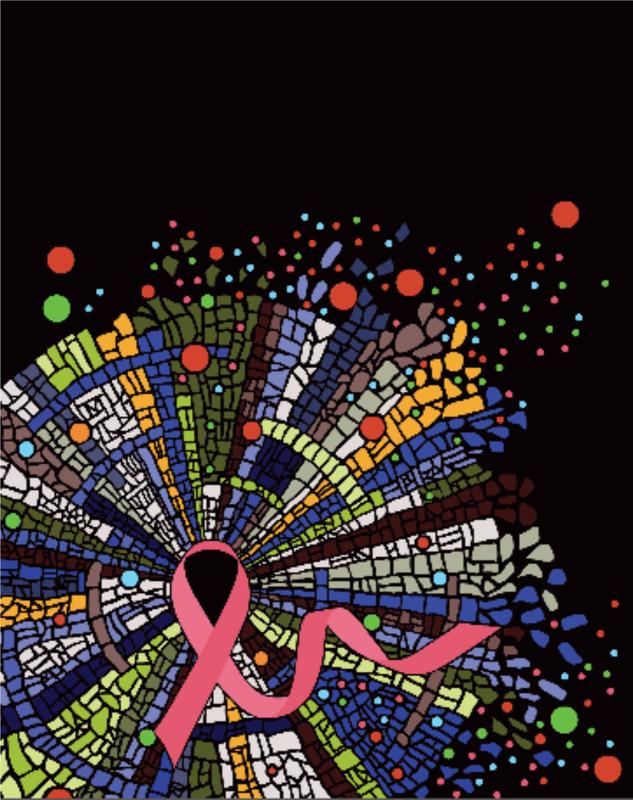

Breast tumors are complex ecosystems. The image shows an invasive breast cancer consisting of many different tumor cell types surrounded and infiltrated by many immune cells.
Johanna Wagner / UZH
Every year more than 1.7 million women all over the world are diagnosed with breast cancer, with the disease ending fatally for around half a million patients. In the fight against breast cancer, research is being done into novel therapeutic approaches that are designed to target cancer cells more precisely and also activate the tumor-associated immune system. So far, however, little has been known about the different cancer and immune cells present within a tumor, and how they differ from patient to patient.
Mass cytometry unravels diversity of cells
Johanna Wagner of the University of Zurich joined forces with Marianna Rapsomaniki of IBM Research in Rüschlikon and the Patients' Tumor Bank of Hope to use mass cytometry to exam-ine several million cancer and immune cells from 140 patients, as the basis for creating an atlas of tumor and immune cells.
“Using this technology we were able to examine the diversity of can-cer cells very precisely and describe how many different types of cancer cells are present in a tumor,” explains Wagner, who's working on her PhD under the supervision of Bernd Bodenmiller, professor at the new Department of Quantitative Biomedicine, whose group specializes in the precision medicine analysis of tissues.
In parallel to this they also analyzed the immune system's tumor-associated macrophages and T-cells, which could attack the tumor – but also support it. If the activated immune system launches a successful attack, the breast cancer cells are destroyed. But if the nearby immune cells are inactivated, the breast cancer cells survive the attack.
Every tumor is unique in terms of its cellular composition
The researchers discovered that the previous assumption that a greater diversity of tumor cells was present in more aggressive tumors was false. More aggressive tumors are in most cases dominated by one single type of tumor cell, which often displays a high degree of abnormality.
“Every tumor we looked at was unique in terms of its cellular composition, which varied from pa-tient to patient. This could be one of the reasons why we're having such difficulty treating breast cancer,” says Wagner.
Breast cancer patients could benefit from immune therapy
At the same time, the scientists discovered similarities in the tumor-associated immune system between the aggressive tumors. Among one group of breast cancer patients they found an ac-cumulation of inactive immune cells that are successfully activated by immune therapy to fight lung and skin cancer. This included patients who previously weren't considered suitable candi-dates for immune therapy to treat breast cancer.
A comprehensive analysis of a tumor's entire cancer and immune cells could thus be a good basis for therapies in precision medicine. “Our findings suggest that immune therapy might pos-sibly work for breast cancer. We'll be doing further studies on this, and if they're successful will extend them into a clinical trial,” explains Professor Bodenmiller.
Professor Bernd Bodenmiller
Department of Quantitative Biomedicine
University of Zurich
Tel. +41 79 1798029
E-mail: bernd.bodenmiller@imls.uzh.ch
Literature:
Wagner, Johanna et al.: A single-cell atlas of the tumor and immune ecosystem of human breast cancer. Cell Press, April 11, 2019. DOI: 10.1016/j.cell.2019.03.005
https://www.media.uzh.ch/en/Press-Releases/2019/Breast-Cancer.html












